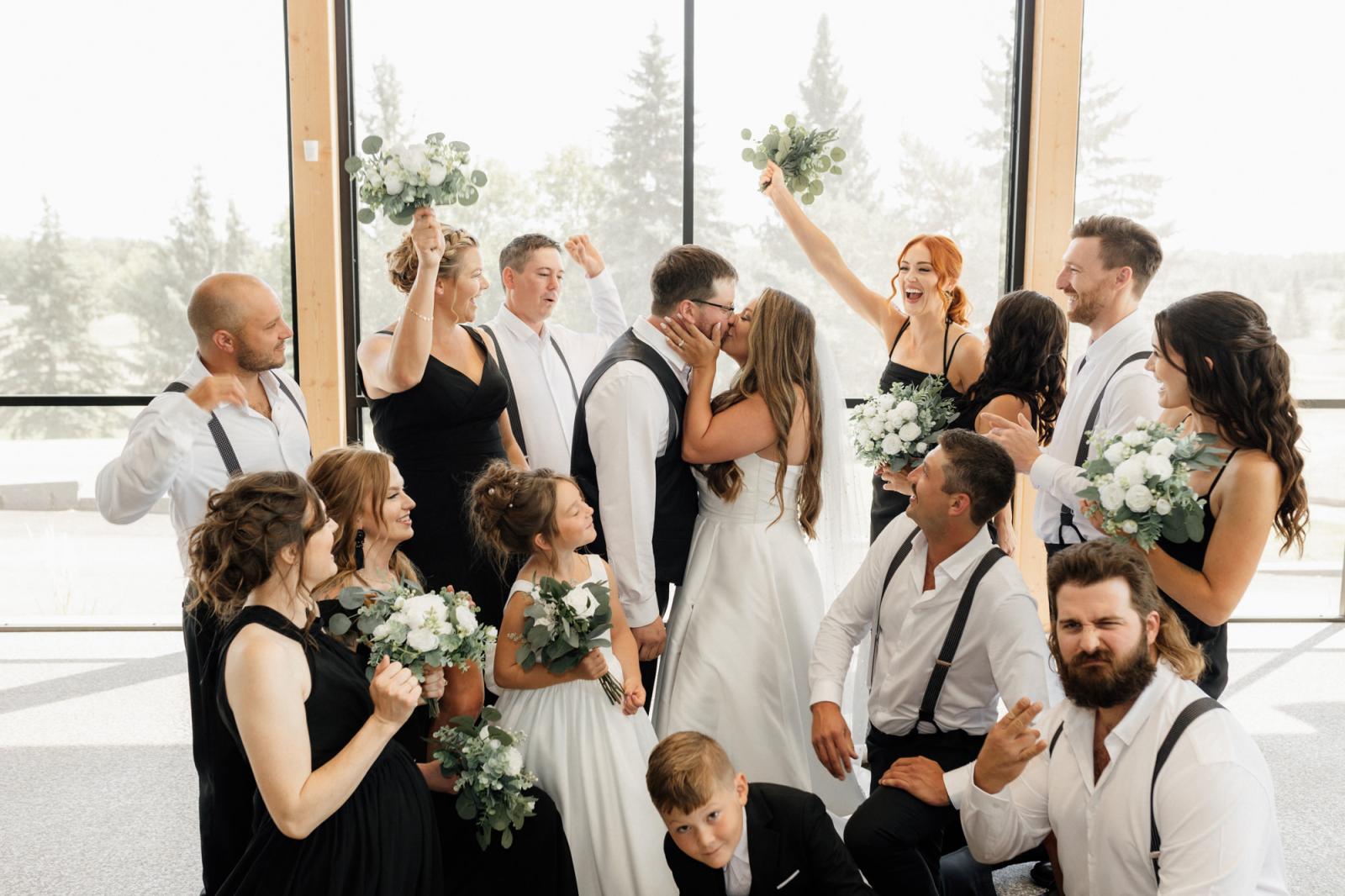Why Knowing the Difference Matters
In the world of Canadian weddings, the terms “planner” and “day-of coordinator” often get used interchangeably. But they’re not the same — and choosing the right kind of help can make or break your day.
From budgeting and vendor research to running the timeline and solving last-minute issues, these two roles serve very different purposes. One helps you build your wedding from the ground up. The other ensures it runs without a hitch.
Related: Should You Hire a Wedding Planner? A Photographer’s Honest Take

What a Full-Service Wedding Planner Does
Hiring a full-service planner means having a professional by your side from the beginning — often a year (or more) before your wedding date.
They help with:
- Budgeting, vendor recommendations, and contract reviews
- Design concepts, mood boards, and layout planning
- Building and managing your timeline from engagement to reception
- Coordinating the rehearsal, ceremony, and reception
- Communicating with every vendor so you don’t have to
They’re your creative director, project manager, and emotional support system all in one.
Average cost in Canada: $3,500 – $8,000+
Photographer Tip:
Planners with strong vendor connections can unlock better timelines, reliable backups, and smoother communication.
Read: What to Put in Your Wedding Day Timeline (According to Your Photographer)
What a Day-Of Coordinator Actually Does
Despite the name, most coordinators begin working with you 4–6 weeks before the wedding. Their job is execution — not planning.
They’ll:
- Review your contracts, timeline, and vendor list
- Build a master schedule and floor plan
- Confirm all vendor details and arrival times
- Run your rehearsal
- Oversee the entire wedding day
They don’t design your wedding or help you source vendors — but they make sure your vision comes together smoothly.
Average cost in Canada: $900 – $2,500
Photographer Insight:
“Some of my smoothest weddings had a strong day-of coordinator. They kept things on track, found missing family for portraits, and adjusted the timeline without anyone stressing out. It made all the difference.”
Read: Things That Always Go Wrong on Wedding Days (According to Photographers)

So… Which One Do You Need?
|
Situation |
Full Planner |
Day-Of |
|
Planning a multi-day or multi-location event |
✅ |
|
|
Planning from another province or country |
✅ |
|
|
DIY venue with no staff |
✅ |
✅ |
|
Small guest list (under 50), simple setup |
✅ |
|
|
High-stress personality who wants full support |
✅ |
✅ |
|
Want partial help but not full planning |
✅ |
When You Shouldn’t Skip Either
You absolutely need one of these roles if:
- Your photographer ends up running the schedule
- Vendors don’t know who to check in with
- You’re being asked logistical questions all day
- Timelines slip and no one steps in
Read: Wedding Photographer Horror Stories (and What You Can Learn From Them)

Bonus: Partial Planning Exists
Many planners now offer flexible packages — like “month-of” planning, design-only support, or vendor sourcing. If full planning feels out of reach, ask what’s available à la carte.
Trying to budget wisely across the board?
Read: How to Hire an Affordable Wedding Photographer (Without Regretting It Later)
Final Thought: You Deserve Support
Even a small wedding deserves strong support. Ask your photographer or venue for coordinator recommendations — and give yourself the gift of presence on your big day.
Explore more: How to Plan a Wedding in Canada — Month-by-Month Timeline